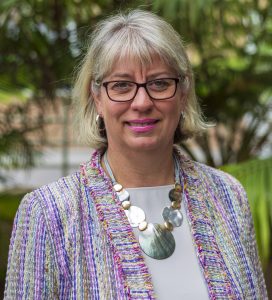Bartle Frere bananas, banana growing.
Australia was represented at COP26 by Queensland's Bartle Frere Bananas and its data-driven smart farming practices. Here's why.
From Hitachi Vantara Associate VP Asia Pacific Manufacturing Practice Owen Keates.
 Hitachi Vantara Associate VP Asia Pacific Manufacturing Practice Owen Keates.
Hitachi Vantara Associate VP Asia Pacific Manufacturing Practice Owen Keates.
Gavin Devaney is an Australian banana farmer with sustainability goals and a desire to grow increasingly environmentally friendly. He has received an Industry Award 2021 for Best Management Practices and an Appetite for Technological Innovation. This combination led his Bartle Frere Bananas to participate in a Smart Farm pilot project recently unveiled by Hitachi Vantara at the United Nations Climate Change Conference, COP26, in Glasgow.
Sensors throughout Bartle Frere Bananas' operations track everything from weather to soil moisture and how the banana plants use the irrigation water. Advanced analytics help with irrigation, pesticide and fertilization decisions. The data already shows that Bartle Frere's best management practices are working.
Why should retailers be interested in a “smart farm”? You should if you grow the best-selling supermarket product in Australia – the banana. When it becomes increasingly important for consumers to understand where their food is coming from, you should. Australian consumers are even calling for more sustainable delivery options. Ideally, data-driven agriculture and supply chain management could help retailers achieve their own ESG goals.
“Australians care where their food comes from. Sustainability and the environment are important to them. They care about what goes in the food they eat. I think they would like to know more about how it is grown and what farming practices it takes to bring the food to the table, ”says Mr. Devaney.
Data-driven smart farming
Reducing water waste: Thanks to weather tracking and forecasting, soil moisture sensors and AI modeling, Mr. Devaney and his team can determine how much and when controlled irrigation is required section by section in each paddock. Efficient irrigation means efficient water use and minimal waste.
“In fact, it turned out that I had parts of the farm under water. We now know in real time exactly how much the soil needs to the milliliter. It was a revelation, ”says Mr. Devaney.
Minimization of the nitrate runoff through optimized fertilization: To ensure healthy banana plants are grown they must be able to access the nutrients in the soil, and an ideal rate of fertilization ensures the farm can deliver a great product to the banana-loving Australians. The use of fertilizer is controlled except for the application rate per area.
Bartle Frere Bananas uses technology to ensure that water and fertilizer use is managed in the best possible way to have a positive long-term impact on the environment. Using a sophisticated approach to environmental monitoring, Bartle Frere Bananas implemented an in-line solar powered nitrate sensor with edge computing capabilities to monitor and report runoff in real time. The data collected so far shows that Mr. Devaney's farming practices ensure negligible traces of nitrate in the sediments draining from their farm.
Use AI and analytics to learn about best management practices: Predictive analytics and prescriptive insights from the Hitachi Lumada Manufacturing Insights platform help Bartle Frere predict when his fruits will be ripe, help with responsible pest and disease management, and determine the ideal amount of water.
Insights and warnings are provided to the farmer through summaries, visualizations and decision-making aids that are accessed through Hitachi Vantara's supply chain control tower solution.
Tracking the banana through the supply chain
“We are in the process of following a system of marking the bananas while they are on the plant. We are already marking the banana boxes that leave our company. The goal is transparency and risk management, ”notes Mr. Devaney, both of which are critical to modern farming practices.
“If there is a problem or question about a particular box or truckload of bananas, we want to be able to trace it back to a specific section of the paddock and all the way from our farm to the point of sale.
“If action needed to be taken, we could identify and investigate or manage that part of the farm instead of closing the entire operation. We were able to identify where along the supply chain it was affected and how. That would not only mean that we could solve every problem immediately, but also without the serious loss of income that would come with the closure of the entire farm. "
With the help of the supply chain control tower, Mr. Devaney can already see his bananas making their way through the supply chain to distribution centers across the country. He receives information such as temperature values and GPS location, which let him know whether the fruit is being transported correctly and whether it has been held up somewhere.
This was especially critical during the pandemic when he and his team couldn't travel to personally inspect points along the supply chain.
Mr. Devaney believes the data provided by this paddock-to-market solution could be of interest to retailers looking for ways to make their food supply chains more sustainable.
“If you can trace meat from the paddock to the plate, you can trace bananas from the paddock to the plate,” he says. “I think Australians care about how their food is grown. This is a multi-generation family farm and I want to be able to proudly show consumers what is in every Bartle Frere Bananas bundle. It's something I've been passionate about for years and we're excited to be part of a pilot project that is making it a reality. "
(This digital smart farm project is the result of a collaboration between Bartle Frere Bananas, Hitachi Vantara Australia Pty Limited, Applied Horticultural Research and the Australian Banana Grower & # 39; s Council (AGBC) and is supported by funding from the Australian National Landcare Program Government backed. It is also funded by Hort Innovation, with co-investments from Applied Horticultural Research, the Australian Banana Grower's Council (AGBC), AusVeg, Freshcare, Greenlife Industry Australia, Growcom, Hitachi Australia Pty Ltd and Hitachi Vantara LLC.)
About Owen Keates
As Associate VP of Hitachi Vantara's APAC Manufacturing Practice, Owen Keates supports successful engagements in the digital transformation of manufacturing and industrial operations and supply chains. He brings process intelligence and big data analysis together as key factors for the digital transformation of his customers and thus creates added value on their Industry 4.0 journeys.
About Hitachi Vantara

Hitachi Vantara LLC, a wholly-owned subsidiary of Hitachi, Ltd. and the parent company of Hitachi Vantara Australia Pty Limited, leads our customers from the present to the future by solving their digital challenges. Together with each customer, we apply our unmatched industrial and digital skills to their data and applications to help both the economy and society. More than 80% of the Fortune 100 trust Hitachi Vantara to create new revenue streams, gain competitive advantage, reduce costs, improve customer experiences, and create social and environmental value.
Please visit hitachivantara.com for more information.
About Hitachi, Ltd.
Hitachi, Ltd. (TSE: 6501), headquartered in Tokyo, Japan, focuses on its social innovation business that combines information technology (IT), operational technology (OT) and products. The company's consolidated sales for the 2019 fiscal year ended March 31, 2020 were 8,767.2 billion yen ($ 80.4 billion) and employed approximately 301,000 people worldwide. Hitachi is driving digital innovation in five sectors – mobility, smart life, industry, energy and IT – through Lumada, Hitachi's advanced digital solutions, services and technologies that transform data into insights to drive digital innovation. Its purpose is to deliver solutions that increase the social, environmental and economic value for its customers. Please visit hitachi.com for more information.
About Hort Innovation

As a grower-owned, not-for-profit research and development company for the Australian horticultural industry, Hort Innovation's primary mission is to create value for horticultural growers and those across the horticultural supply chain. Each year it invests more than $ 120 million in research and development, marketing and trade programs to improve the productivity, on-farm profitability and global competitiveness of Australian farmers.
More information is available at horticulture.com.au.




